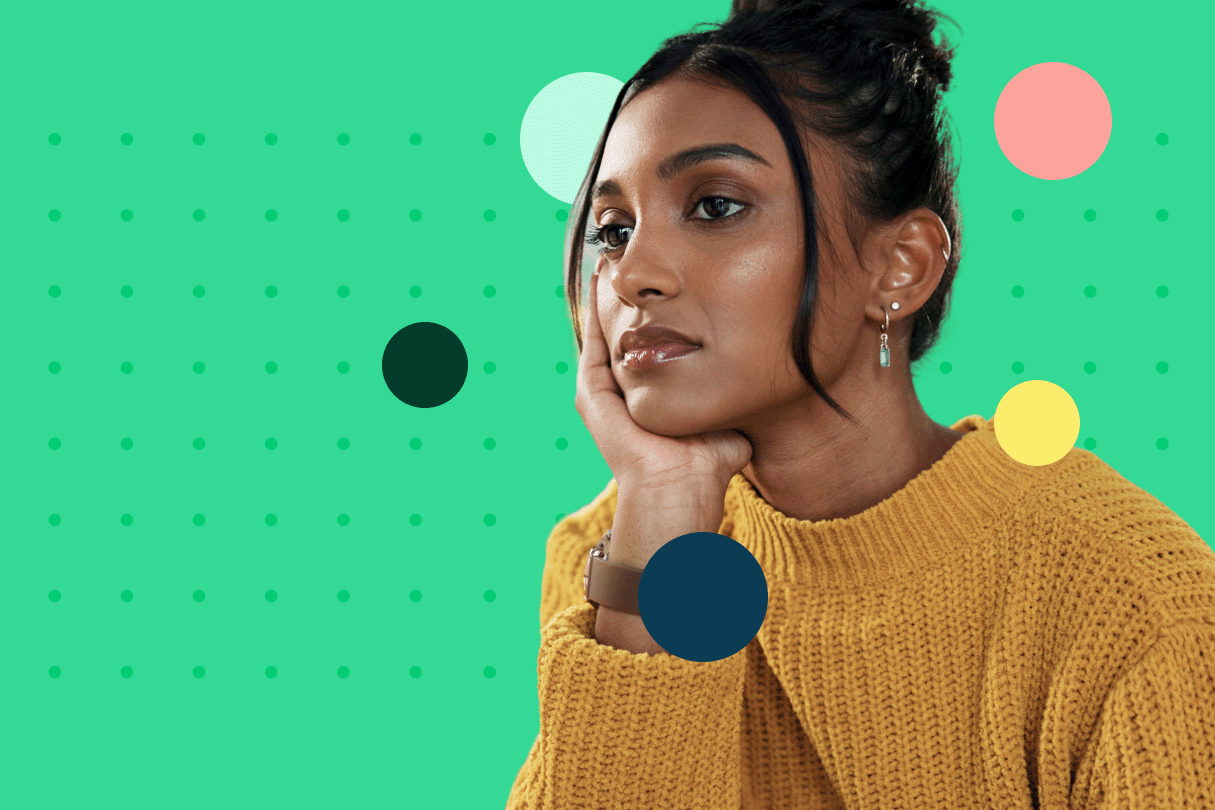That tight chest, racing thoughts, and constant sense of dread isn't just you. Millions of people are navigating the same storm of anxiety every day, searching for solid ground. But here's what most articles won't tell you - finding the right therapist isn't about luck or scrolling through endless profiles. It's about understanding exactly what type of professional matches your specific anxiety pattern, because not all anxiety is created equal, and neither are the people who treat it.
Navigating the world of mental health can feel incredibly overwhelming, especially when you're already caught in anxiety's grip. This guide simplifies that search, breaking down different types of therapists and therapies that can help.
Glossary: Key Terms You'll See in This Guide
Before diving into therapist types, let's quickly define a few terms. Think of this as your mini-glossary:
- Anxiety Disorder: More than everyday stress, these are persistent, often overwhelming conditions that significantly impact daily life, making even simple tasks feel impossible.
- Therapist/Counselor: A general term for a mental health professional who provides talk therapy. They help you explore thoughts, feelings, and behaviors to improve your well-being.
- Psychologist: A mental health professional with a doctoral degree (PhD or PsyD) in psychology. They provide therapy and conduct psychological testing.
- Psychiatrist: A medical doctor (MD) specializing in mental health. They diagnose conditions and prescribe medication.
- CBT (Cognitive Behavioral Therapy): A popular and highly effective therapy that helps you identify and change unhelpful thinking patterns and behaviors contributing to anxiety.
- Evidence-Based Treatment: Types of therapy tested through scientific research and proven effective for specific conditions like anxiety.
Understanding Anxiety Disorders First
Before exploring who can help, it’s important to understand what anxiety really is. According to the Diagnostic and Statistical Manual of Mental Disorders (DSM-5), anxiety disorders involve excessive fear and anxiety accompanied by related behavioral disturbances, including avoidance of situations perceived as threatening.
In practice, that might look like a constant knot in your stomach, a racing heartbeat, or a mind caught in a loop of “what ifs.” These aren’t fleeting nerves before a big presentation; they’re persistent, often overwhelming experiences that can interfere with daily life and decision-making.
The main types include:
- Generalized Anxiety Disorder (GAD)
- Social Anxiety Disorder
- Panic Disorder
- Specific Phobias
- Separation Anxiety Disorder
Each type may benefit from slightly different therapeutic approaches, which is why the type of therapist you choose really matters.
Types of Mental Health Professionals Who Treat Anxiety
When seeking help, you'll encounter a few different titles. Let's break down who does what:
Licensed Clinical Social Workers (LCSWs)
LCSWs are often a great first contact for anxiety treatment. They understand how your environment, relationships, and life circumstances contribute to anxiety, taking a holistic view of your mental health.
What they offer:
- Individual and group therapy
- Crisis intervention
- Family therapy
- Connections to community resources and support systems
Best for: People who want to explore how social factors, life changes, or community resources might impact their anxiety, or those needing help accessing additional support services beyond just therapy.
Licensed Professional Counselors (LPCs)
LPCs (also known as Licensed Mental Health Counselors) specialize in psychotherapy and counseling. They're skilled at helping people develop practical coping strategies for anxiety, building a robust toolbox for managing anxious thoughts and feelings.
What they offer:
- Individual counseling tailored to your needs
- Specialized anxiety treatment techniques
- Skill-building sessions (e.g., mindfulness, relaxation, problem-solving)
- Opportunities for long-term therapeutic relationships
Best for: Individuals seeking focused talk therapy and practical, actionable anxiety management tools for daily life.
Licensed Marriage and Family Therapists (LMFTs)
Don't let the name fool you! While LMFTs excel at working with couples and families, they also treat individual anxiety disorders. This is especially true when family dynamics, relationship issues, or past experiences play a significant role in your anxiety. They offer a "systems perspective," connecting all parts of your life to your mental well-being.
What they offer:
- Individual therapy with a unique focus on how relationships and family history influence you
- Couples therapy to address anxiety-related relationship challenges
- Family therapy when anxiety impacts the whole family dynamic
Best for: People whose anxiety significantly impacts their relationships, stems from family-of-origin issues, or whose family system contributes to their stress.
Psychologists (PhD or PsyD)
Psychologists hold doctoral degrees (PhD or PsyD). They provide in-depth therapy and comprehensive psychological testing. Highly skilled in evidence-based treatments for anxiety, they ground their work in research.
What they offer:
- Comprehensive psychological assessments (helpful for clear diagnoses)
- Specialized therapy techniques, often rooted in scientific research
- Neuropsychological testing for complex cases
Best for: Complex anxiety cases requiring thorough assessment, specialized treatment approaches, or when you want someone with extensive academic and clinical training.
Psychiatrists (MDs)
Psychiatrists are medical doctors (MDs) specializing in mental health. Because they're MDs, they can prescribe medication. They're essential for complex anxiety disorders requiring both medication and therapeutic intervention, offering a holistic view of physical and mental health.
What they offer:
- Medication management for anxiety symptoms
- Medical evaluation to rule out underlying physical causes for anxiety
- Treatment of co-occurring medical conditions impacting mental health
Best for: Severe anxiety disorders, cases requiring medication, or when medical factors significantly contribute to your anxiety.
Most Effective Therapy Types for Anxiety Disorders
Now that we've covered who can help, let's talk about how they help. The type of therapy often matters as much as the therapist's credentials.
Here are the most researched and effective treatments for anxiety:
Cognitive Behavioral Therapy (CBT)
CBT is widely considered a gold standard for anxiety treatment due to its robust evidence base. It's a practical, present-focused approach that helps you identify and challenge unhelpful thought patterns and behaviors that fuel anxiety. For example, if you think, "I'm going to mess up this presentation and everyone will laugh," CBT helps you pause, recognize that thought, examine its evidence, and reframe it into something more balanced like, "I'm nervous, but I've prepared, and even if I stumble, I can recover."
Here at Spring Health, we deeply understand the power of CBT; it's a cornerstone of our approach to helping members manage anxiety effectively. Learn more on our blog: CBT, Explained: The Therapy Approach Everyone's Talking About.
| CBT Techniques | How It Helps Anxiety |
|---|---|
| Cognitive restructuring | Helps challenge and change anxious thought patterns. |
| Exposure therapy | Gradually reduces avoidance behaviors by confronting fears safely. |
| Relaxation training | Teaches techniques to manage physical symptoms of anxiety. |
Dialectical Behavior Therapy (DBT)
While originally developed for borderline personality disorder, DBT has proven remarkably effective for anxiety disorders, especially when intense emotions, emotional regulation difficulties, or interpersonal challenges are part of the picture. It's a skills-focused approach, teaching concrete ways to cope. Spring Health also offers extensive resources on Dialectical Behavior Therapy (DBT) as part of its comprehensive mental healthcare offerings.
Key DBT skills for anxiety:
| DBT Skills | How It Helps Anxiety |
|---|---|
| Distress tolerance | Teaches you to ride out intense emotions without being overwhelmed. |
| Emotion regulation | Helps you understand and manage overwhelming feelings. |
| Mindfulness | Keeps you grounded in the present instead of spiraling into worries. |
| Interpersonal effectiveness | Builds communication skills to reduce relationship-related anxiety. |
Eye Movement Desensitization and Reprocessing (EMDR)
While primarily known for treating trauma, EMDR can also be effective for anxiety disorders, especially those with a trauma component or specific phobias. This specialized approach helps your brain reprocess distressing memories or experiences, often reducing their emotional charge.
EMDR for Anxiety - When It Helps:
- Trauma-related anxiety: When anxiety stems from specific traumatic events or PTSD
- Specific phobias: Particularly effective for phobias with underlying traumatic origins
- Childhood-based anxiety: When current anxiety connects to difficult early life experiences
- Complex anxiety: When traditional CBT approaches haven't provided sufficient relief
The 8-Phase EMDR Process:
| Phase | What Happens |
|---|---|
| 1. History Taking | Therapist gathers information about your anxiety, trauma history, and identifies target memories. |
| 2. Preparation | Build trust, explain the process, teach coping skills for managing emotional distress. |
| 3. Assessment | Identify specific memories, negative beliefs, and desired positive beliefs. |
| 4. Desensitization | Use eye movements or other bilateral stimulation while focusing on distressing memory. |
| 5. Installation | Strengthen positive beliefs to replace negative ones associated with the memory. |
| 6. Body Scan | Check for any remaining physical tension or distress related to the memory. |
| 7. Closure | Return to calm state, discuss insights, and plan for between sessions. |
| 8. Reevaluation | Review progress at next session and adjust treatment as needed. |
Exposure Therapy
Exposure therapy is a powerful, evidence-based approach specifically designed to help individuals confront their fears in a safe, controlled environment. Rather than avoiding anxiety-provoking situations, this therapy gradually exposes you to the very things that trigger your anxiety, helping you learn that you can handle them and that your feared outcomes rarely materialize.
Key techniques:
| Exposure Technique | Description |
|---|---|
| Systematic desensitization | Gradual exposure paired with relaxation techniques. |
| In-vivo exposure | Real-life practice confronting feared situations. |
| Imaginal exposure | Mental visualization of anxiety-provoking scenarios. |
| Interoceptive exposure | Deliberate induction of physical sensations. |
Comparing Effective Therapies for Anxiety
While each therapy type has its unique strengths, experienced therapists often combine elements from multiple approaches to create personalized treatment plans. Rather than viewing these as competing methods, think of them as complementary tools. CBT might form the foundation while incorporating DBT skills for emotional regulation, or EMDR might be integrated alongside exposure therapy for trauma-related anxiety.
| Therapy Type | Primary Focus | Best For |
|---|---|---|
| CBT | Identifying and changing negative thought patterns. | Generalized anxiety, panic disorder, phobias, social anxiety — often a first-line treatment. |
| DBT | Emotional regulation, distress tolerance, interpersonal skills. | Anxiety with intense emotional swings, self-harm urges, or interpersonal difficulties. |
| EMDR | Reprocessing distressing memories and experiences. | Anxiety stemming from trauma, PTSD, and specific phobias with an underlying traumatic component. |
| Exposure Therapy | Exposes you to the very things that trigger your anxiety. | Addressing and treating phobias. |
Choosing the Right Therapist for Your Specific Anxiety Type
This is where it gets really personal. Different anxiety disorders often respond better to specific approaches, so knowing your particular struggle helps narrow down your search:
For Generalized Anxiety Disorder (GAD)
This is the "chronic worrier" anxiety, where your mind feels like a hamster wheel of "what ifs."
- Best therapist types: Psychologists, LCSWs, LPCs, or LMFTs with a strong CBT background.
- Recommended approaches: CBT (especially cognitive restructuring) or mindfulness-based interventions.
- Why: GAD involves much ruminating and chronic worry, which responds well to techniques that help challenge and reframe those thoughts.
For Social Anxiety Disorder
If the thought of social situations fills you with dread, making everyday interactions feel like climbing a mountain.
- Best therapist types: Psychologists, LCSWs, LPCs, or LMFTs specializing in anxiety disorders or expertise in exposure therapy.
- Recommended approaches: CBT with a heavy emphasis on exposure therapy, and often group therapy.
- Why: Social anxiety thrives on avoidance. You need specific techniques to gradually and safely re-engage with social situations and practice new skills.
For Panic Disorder
When sudden, intense fear or panic attacks take over, making you feel like you're losing control or even having a heart attack.
- Best therapist types: Psychologists, LCSWs, LPCs, or LMFTs with a specific specialization in panic disorder.
- Recommended approaches: CBT (especially panic-focused therapy targeting physical symptoms and catastrophic thinking), and sometimes biofeedback.
- Why: Panic attacks need very specific interventions that help you understand the cycle of panic and learn to tolerate physical sensations without spiraling into fear.
For Specific Phobias
An intense, irrational fear of a particular object or situation (like flying, spiders, heights) that feels out of proportion to the actual threat.
- Best therapist types: Psychologists, LCSWs, LPCs, or LMFTs who are experts in exposure therapy.
- Recommended approaches: Systematic desensitization and exposure therapy are the absolute champions here.
- Why: Phobias respond extremely well to gradual, controlled exposure techniques that help you "unlearn" the fear response.
A wall full of diplomas doesn’t guarantee the best fit, or the best results. Research shows that the therapeutic alliance, how safe and understood you feel, plus the therapist’s specific training in evidence-based anxiety treatments predict success far better than degree level.
Plenty of master’s-level clinicians (LCSWs, LPCs, LMFTs) complete post-graduate specialty programs in CBT, DBT, or exposure therapy and deliver strong outcomes. Focus on their anxiety expertise and whether you click with them, not just the letters after their name.
When to Look for a Different Therapist
Finding the right fit is crucial, and sometimes, a therapist just isn't the right one, even with perfect credentials. It's okay to move on! Watch for these warning signs:
- Lack of experience with anxiety disorders: If they seem unsure or vague about treating anxiety specifically.
- No clear treatment plan: After a few sessions, you should have some idea of goals and how you'll work towards them.
- Dismissing your concerns or symptoms: You need to feel heard and validated; this is non-negotiable.
- Poor communication: Consistently missed appointments, late replies, or general unreliability.
- No measurable progress: While therapy isn't a quick fix, if you feel stuck or even worse after 8-12 sessions with no clear path forward, it might be time to reassess.
- Pushing only one treatment approach: A good therapist should be flexible and consider alternatives if something isn't working for you.
How to Find the Right Anxiety Therapist
Now you know what you're looking for... how do you actually find them? This can feel like a daunting task, especially when you're already feeling vulnerable.
1. Check Your Insurance Coverage
This is often the first practical step. Understand what your insurance covers. Many employers, seeing the profound impact of mental health on their workforce, now offer comprehensive mental health benefits through platforms like Spring Health. These platforms can provide incredibly fast access to qualified therapists specializing in anxiety treatment, making the search much smoother.
2. Look for Specializations
Don't settle for a generalist if you're dealing with a specific anxiety disorder. Look for therapists who explicitly list anxiety, and ideally your specific type of anxiety, as a primary specialty area. You want someone who truly "gets it."
3. Consider the Therapeutic Approach
Research consistently shows that while the therapeutic relationship is crucial, using evidence-based treatments also plays a significant role in successful outcomes. Make sure your potential therapist uses approaches proven effective for anxiety, like CBT or DBT.
4. Ask the Right Questions
During your first consultation (which many therapists offer for free or at a reduced rate), don't be afraid to ask – think of it as an interview for a very important role in your life:
- "What experience do you have treating anxiety disorders, particularly [my specific type]?"
- "What therapeutic approaches do you use for anxiety, and how do you decide which one to apply?"
- "How do you measure progress in treatment? What can I expect?"
- "How long do you typically work with anxiety clients, and what does the treatment journey usually look like?"
- "What is your approach to medication, and do you collaborate with psychiatrists if needed?"
- "What are your fees, and do you offer a sliding scale or are you contracted with my insurance?"
5. Trust Your Gut
Ultimately, the therapeutic relationship is everything. You need to feel safe, comfortable, understood, and hopeful after sessions with your therapist. If something feels off, or you just don't click, it's perfectly okay to explore other options. This is your mental health journey.
What to Expect in Anxiety Therapy
Going to therapy for the first time can feel a bit daunting, so here's a general roadmap:
Initial Sessions (1-3)
- Comprehensive assessment: Your therapist will ask many questions about your symptoms, history, and life to get a full picture.
- Discussion of goals: What do you want to achieve? What would life look like with less anxiety?
- Treatment plan: You and your therapist will collaborate on a roadmap for your therapy journey.
- Basic education: You'll learn more about your specific anxiety disorder and how therapy can help demystify what you're experiencing.
Middle Phase (4-12+ sessions)
- Active skill-building: You'll learn and practice anxiety management skills, like cognitive restructuring or mindfulness.
- Exposure exercises: If appropriate for your anxiety, you'll gradually and safely confront feared situations with guidance.
- Processing: You'll explore underlying issues, thought patterns, and past experiences contributing to your anxiety.
- Regular check-ins: Your therapist will constantly check your progress and adjust the plan as needed.
Later Phase (Variable)
- Relapse prevention: Learning strategies to maintain progress and cope with future challenges.
- Maintenance sessions: Some people opt for less frequent "booster" sessions to stay on track.
- Transition to self-management: The ultimate goal is for you to become your own best support, equipped with tools to manage anxiety independently.
The Cost Question: Is Therapy Worth It?
Therapy can feel expensive, and it's a very real concern for many.
But consider this: untreated mental health issues can be incredibly costly to your life. It'll likely impact your relationships, your job, and your physical health.
Investing in proper treatment now can save you significantly in the long run in terms of your overall quality of life. Think of it as investing in your future self: a calmer, more capable you.
Making Your Decision
Choosing the right therapist for anxiety isn't about finding someone with the most impressive credentials (though competence absolutely matters!). It's about finding that sweet spot. Someone who:
- Has specific, proven experience treating anxiety disorders.
- Uses evidence-based approaches like CBT or DBT that align with your needs.
- Makes you feel genuinely heard, understood, and safe to be vulnerable.
- Provides clear structure, measurable goals, and a path forward.
- Fits within your budget and schedule constraints.
Remember, you absolutely don't have to figure this out alone. If you're searching for "anxiety therapy near me," it can feel like a shot in the dark. That's where platforms like Spring Health truly shine, using smart matching technology to connect you with therapists who specialize in your specific needs, often with appointments available much faster than traditional routes. For more about finding a quality solution, explore Spring Health’s provider matching.
Quick Steps to Finding Your Anxiety Therapist
- Understand Your Anxiety: Pinpoint your specific anxiety type (GAD, social, or panic).
- Research Therapist Types: Decide which professional (LCSW, LPC, Psychologist, Psychiatrist) aligns with your needs.
- Prioritize Approaches: Look for therapists specializing in evidence-based methods like CBT, DBT, or EMDR.
- Check Insurance: Verify coverage to narrow down options.
- Ask Key Questions: Use the provided list during initial consultations.
- Trust Your Instincts: Choose someone who makes you feel comfortable and hopeful.
Your Anxiety Therapy Checklist
- Credentials Verified: Is the therapist licensed and qualified?
- Anxiety Specialty: Do they have explicit experience with anxiety disorders (and your specific type)?
- Evidence-Based Methods: Do they use CBT, DBT, EMDR, or other proven approaches?
- Clear Treatment Plan: Did you discuss goals and a path forward?
- Good Rapport: Do you feel heard, respected, and understood?
- Logistics Handled: Are appointments, fees, and insurance clear?
- Progress Tracking: How will success be measured and adjusted?
Take the Next Step
Living with anxiety doesn’t have to be your everyday experience. The right therapist can help you develop the skills and insights needed to manage your anxiety effectively and reclaim your life. It's a journey, not a destination, but with the right support, you can absolutely get there.
If you're ready to start your journey toward better mental health and are searching for "anxiety therapy near me," consider reaching out to a comprehensive mental health platform like Spring Health that can match you with the right anxiety specialist for your unique needs. Don't let the search overwhelm you – let technology and specialized care streamline the process. Your future self will thank you for taking this important step today.
The path to managing anxiety isn't always linear, but with the right professional support, you can develop the tools to live a fuller, less anxious life. Don't wait – your mental health is worth investing in.


.png)
























